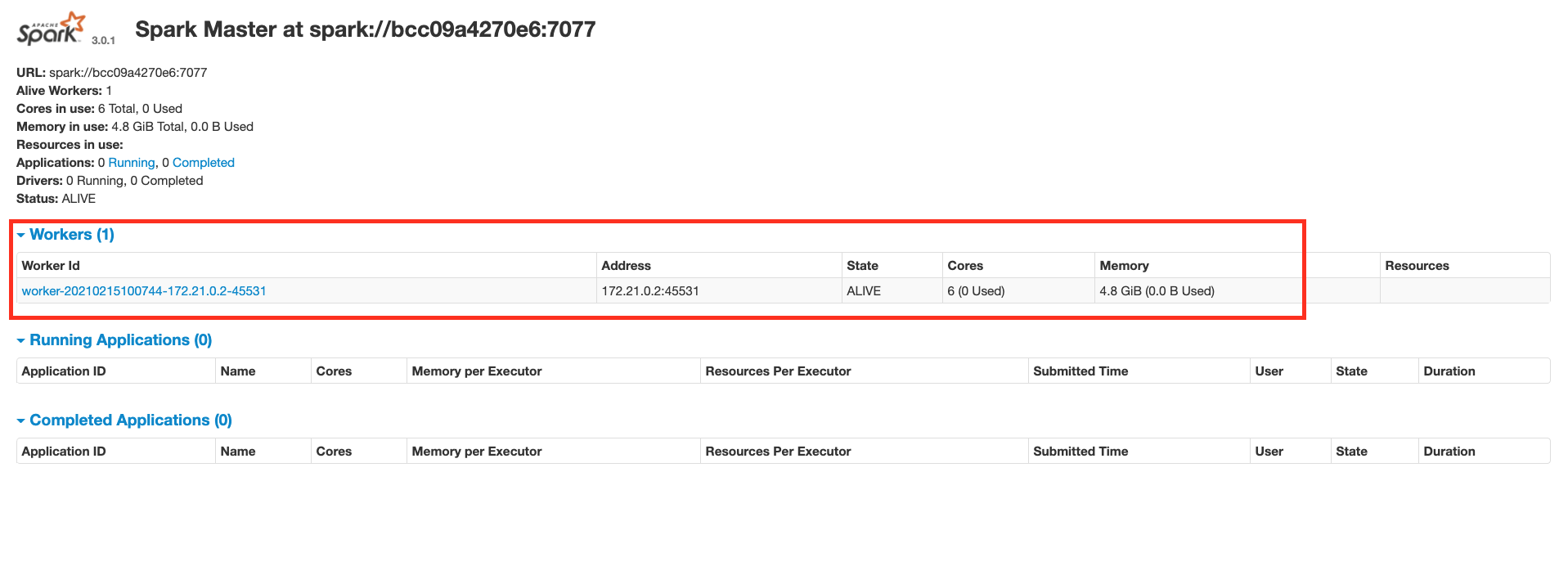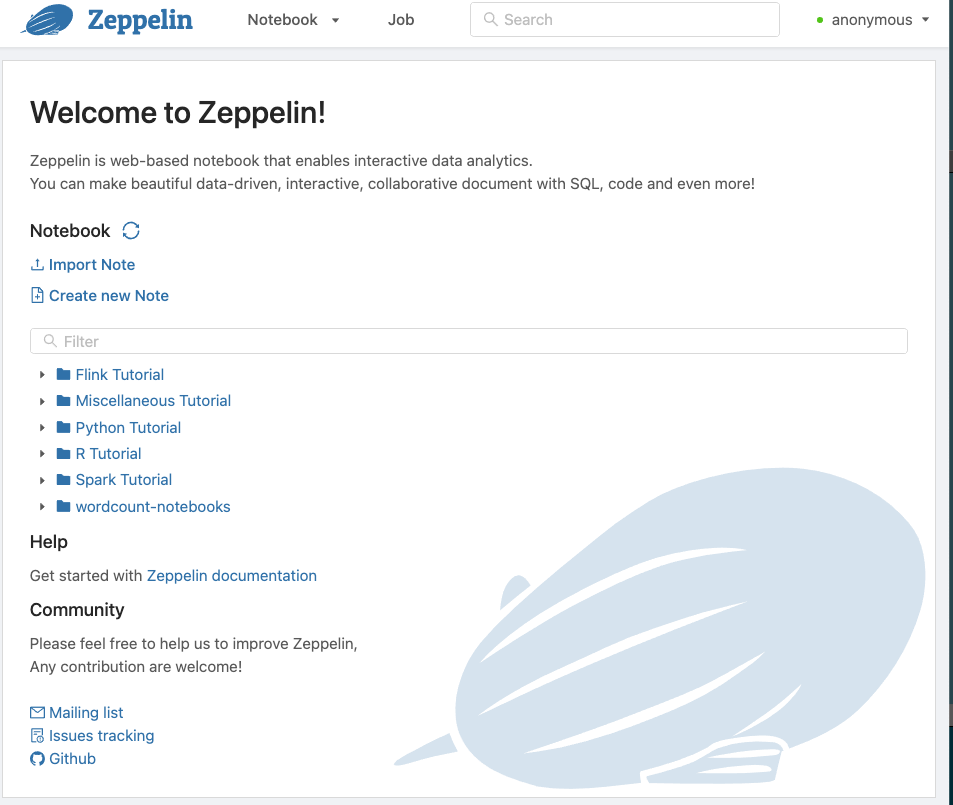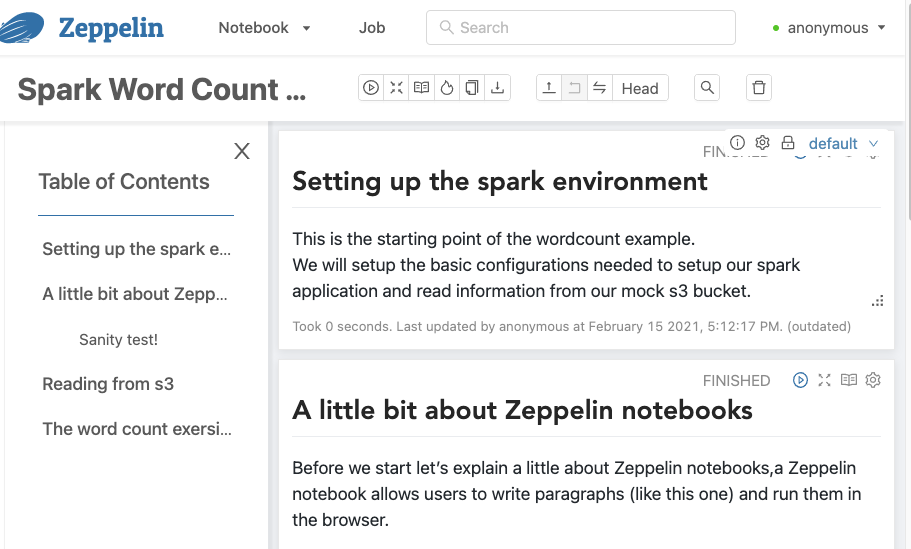A local environment for running a zeppelin notebook with a spark3 engine.
This is a "sandbox" repository for learning about setting up basic spark sandboxes using zeppelin and spark to perform some simple data exploration and manipulation.
- Start your local spark cluster by running:
docker-compose up- This will build local spark docker images for spark master and worker
- It will start a simple standalone spark cluster with a single worker
- A minio s3 service will also be launched, you can read more about this super useful project here
- This may take a few minutes the first time you run
- If you're feeling adventurous, you can start multiple workers by running:
docker-compose up --scale zeppelin-spark-worker=2
What's happening?
- Once done, you can open localhost:8080 to view the spark master UI.
- You should see the following UI and a single worker node connected to it:

- We've also started a minio instance running a local minio service which we'll use a s3 mock
- This local "s3" has a single bucket
word-countwith a few csv files that contain information regarding airlines and airports across the world. - You can read more about this open source project at https://github.com/jpatokal/openflights
- You can browse this by opening localhost:9000
- User:
abc - Password:
xyzxyzxyz
- User:
- See that we've already pushed a sample data set there

- Download and "peek" at the data: You should see an output similar to:
- This local "s3" has a single bucket
21251,"Lynx Aviation (L3/SSX)","","","SSX","Shasta","United States","N"
21268,"Jetgo Australia","","JG",\N,"","Australia","Y"
21270,"Air Carnival","","2S",\N,"","India","Y"
21317,"Svyaz Rossiya","Russian Commuter ","7R","SJM","RussianConnecty","Russia","Y"
Now that we have our standalone spark cluster up and running, we can launch our zeppelin notebook and get to work.
- Run
docker-compose -f docker-compose-zeppelin.yml upto start a local zeppelin notebook. - You can access the notebook UI at localhost:9090

You can start experimenting with notebooks by opening the wordcount-notebooks notebooks:

- Once in the zeppelin ui, choose any of the tutorials and start experimenting.
- The custom tutorial notebook written for this repository are the ones under the
workcount-notebooks